
Understanding Class Divisions in Society: A Classical Liberal Approach
A talk given by David Hart to the Adam Smith Centre and the Stanford Society of Singapore, 20 Jan. 2020.
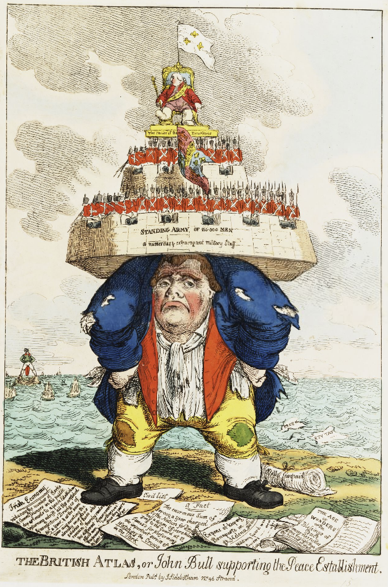
[James Gillray, “The British Atlas, or John Bull supporting the Peace Establishment” (1816)]
The Problem of defining our Terms
- liberal
- libertarianism
- classical liberalism
- radical / real liberalism
- individualism (Steve Davies)
- (American) liberalism
- neoliberalism
- capitalism
- capitalist system
- late capitalism
- post capitalism
- state capitalism
- free market capitalism
- the free market system
- Marxism
- communism
- socialism
- social democracy
- statism
- interventionism (Mises)
Abbreviations:
- CL = Classical Liberal or liberalism
- CLCA = Classical Liberal Class Analysis
- S&M = Socialism and Marxism
The Spectrum of State Power
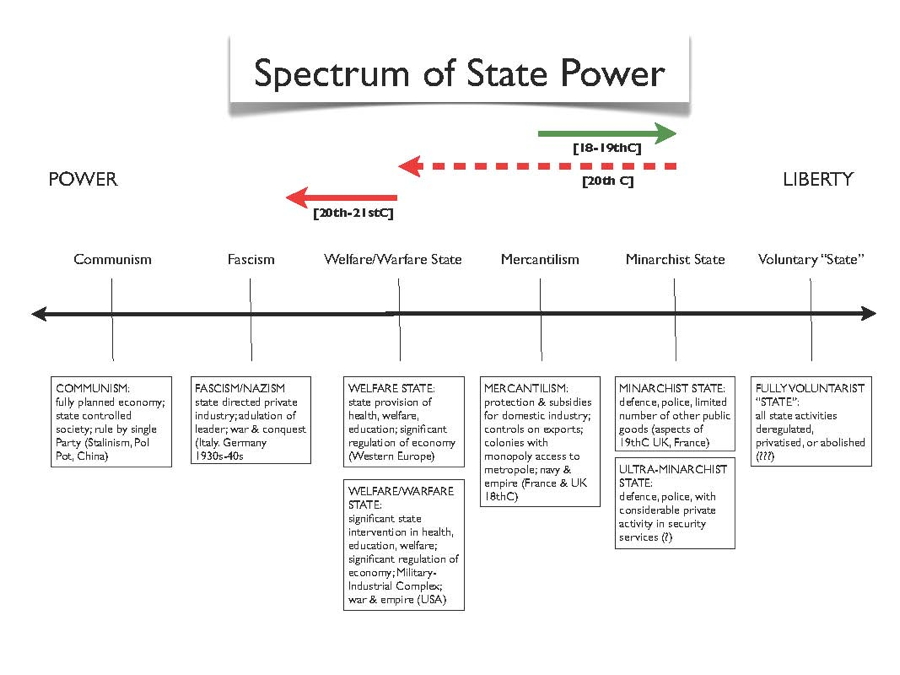
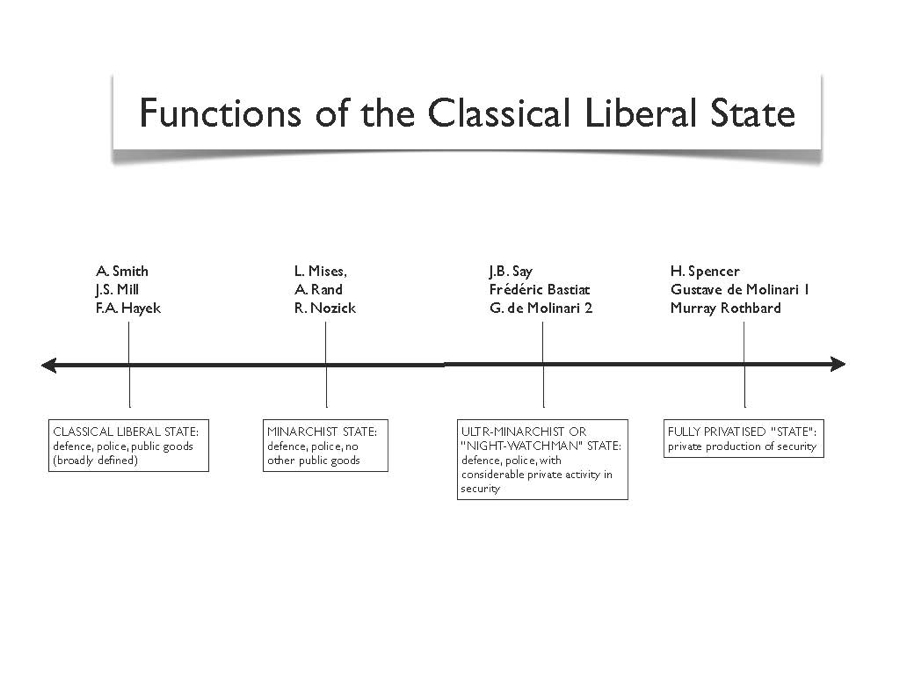
Problems caused by Interventionism
Free market economists (Chicago school, Austrian School and Public Choice) argue that there are inherent problems when governments run, regulate, or interfere in economic activity.
These give rise to distortions in the economy, even the complete breakdown of economies in extreme cases, and are a source of tension and conflict between different groups.
- information about the scarcity or goods and services (prices) is blocked
- the allocation of resources to the most needed end use is hampered or prevented
- the incentives to work and save are restricted or blocked
- satisfying the needs of consumers is no longer of prime importance for producers
- there are unintended consequences of government intervention
- markets are forced underground by banning or severely regulating certain kinds of exchanges
- there is the danger of politicians and regulators pursuing their own interests (public choice)
- the protection of the property rights of individuals and maintenance the rule of law (contracts) is weakened or even abolished.
The more governments interfere in the operation of markets the more severe are the problems they create with these above 8 things
Under communism, the problems are catastrophic, resulting in the complete breakdown of the economy.
In the welfare state the problems are serious, high taxes and regulation discourage economic activity, there is sclerotic economic growth, and there are periodic boom-bust economic cycles which disrupt the economy.
In a “liberal” limited state the problems are chronic but not as serious; there are problems in determining the correct level of funding for certain public goods.
In a fully free market the problems would largely disappear or be be temporary or minimal and could be resolved by the courts (torts, contract violation).
Tensions and Conflicts caused by Interventionism (Statism)
Socialist vs. CL Theories of Class and Class Conflict
Similarly, the more governments interfere in the operation of markets and the lives of individuals the more severe are the tensions and conflicts they create.
Within the CL / libertarian tradition (which emerged over the past 400 years - see my anthology of key texts) there has emerged a theory of class and class conflict (before and in parallel with the more widely known S&M theory of class and class conflict) in order to understand and oppose the groups who benefit from and cause these problems and conflicts.
In essence the S&M view is that class conflict is inherent in the "capitalist system" as a result of paying workers wages (labour theory of value), the harmful consequences of competition, and the pursuit of self-interest at the expence of the community.
In essence the CL theory is that conflict is not inherent or inevitable in free market exchanges, that competition is beneficial for consumers, and that it is only when individuals or groups seek special privileges from the state (coercion) that conflict arises.
I cannot go into the details of the theory of CLCA here but only refer to some of my other work on this topic.
Some Examples of Social Tensions and Conflicts caused by Governments
These tensions and conflicts created by governments include:
- different groups fighting over control of limited resources (taxes) in order to get benefits for themselves
- different groups trying to get laws passed by the government to further their own vision of "the good society” and to exclude or harm groups they oppose
- different regions of nation states trying to free themselves from central control and taxation, and seeking autonomy
- groups which oppose the “capitalist system” (the free market and liberal society) and which seek to either overthrow it or radically change it so it conforms to their ideas of how a future society should be structured and run
- the most powerful groups in society who wish to use the power of the state to pursue their own interests at an international level
1. Fighting over Limited Tax Resources
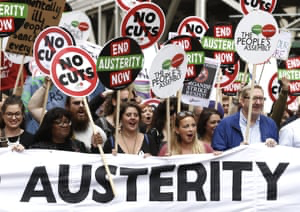
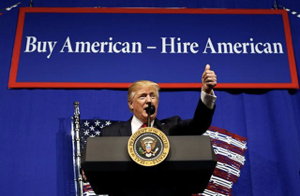
(1.) different groups fighting over control of limited resources (taxes) in order to get benefits for themselves, or to shield themselves from changing circumstances at other people’s expense:
- opposition to so-called “neo-liberal” “austerity” by vested interest groups, recipients of tax-payer funded benefits (government benefits, jobs, services) vs. the general taxpayers who pay for this and non-users of these programs; yet figures show government expenditure and the level of taxation continue to grow overall;
- those who resist these cuts are the bureaucracies which administer these programs, the beneficiaries of these programs (wealth transfers, legal privileges, monopolies), the politicians for whom these beneficiaries vote
- there is near universal resistance to reforms: e.g. beneficiaries of SS in US; NHS in Britain; renters of subsidised housing in Singapore and HK; consumers of subsidised petrol in Iraq, etc
- a special case of this is the resistance of retirees and older taxpayers approaching retirement who resist cuts to Social Security and Medicare (in the US - the “baby-boomer generation”) as the economic crisis of the welfare state becomes increasingly apparent; vs. younger taxpayers who are coming to realize that the system is not viable in the long run and they will not benefit at all or as much as their elders; also protests in France over the retirement age (state funded retirement)
- opposition to “globalization” of trade and economic acivity - inhabitants of declining regions who think they have been “left behind “, in the face of world-wide markets and trade, demand governments preserve their way of life from change (declining industries, unemployment, reduced job opportunities), those living in old industrial regions (north of England, “rust-belt states in American Midwest - Brexit and Trumpism; tax resistance to high diesel taxes in France vs. taxpayers, consumers who have changed their buying preferences, the firms and workers in these foreign countries whose products are ink demand; those who have benefited (this who live in cosmopolitan large cities (NY, LA, London, Singapore)
- the rise of protectionism (Pres. Trump and “Make America Great Again") - large industries (aluminium, car makers, air-conditioning manufacturers (e.g. Carrier air-conditioning in Indiana)) lobby government to impose tariffs on foreign imports to shield themselves from competition, or ask for government bailouts, vs. other industries and those who work in them (who used protected items as inputs), consumers who are forced to pay higher prices for these goods
- business and banking elites who use the power of the state to protect themselves from the consequences of their poor decisions and investments, at taxpayer and consumer expence - the “rescue” of Wall Street after the 2008-9 financial crisis (the big banks, bailout of General Motors, large investment firms); the manipulation of interest rates and government purchase of uneconomic bonds (Quantitative Easing); the massive distortions this has created in the bond market, investment in risky business activities because of very low interest rates vs. Main Street in US (small business, retirees living on fixed incomes)
- related to this is the fear of “Big Tech” (Google, Amazon, Apple) vs. ordinary users of cell phones and the internet
2. Legislation to Privilege one way of Life over another
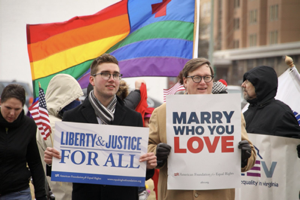
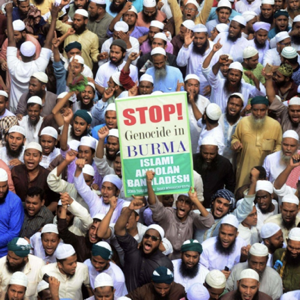
(2.) different groups trying to get laws passed by the government to further their own vision of "the good society” and to exclude or harm groups they oppose:
- well connected minorities (often religious or socially conservative) passing laws to exclude or harm groups the majority opposes vs. gays, peaceful drug producers and consumers, religious and ethnic minorities, producers and consumers of pornography, gun manufacturers and owners; this forces individuals into the black market (drugs, pornography), underground (gays), to emigrate or become refugees
3. The Struggle for Regional Autonomy
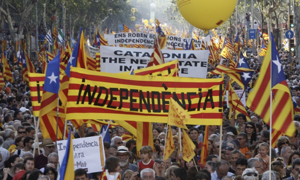
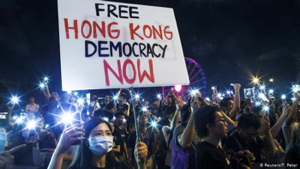
(3.) different regions of nation states trying to free themselves from central control and taxation, and seeking autonomy:
- the centralized nation state vs. the regions (which often had been politically autonomous previously) - the modern, centralized, nation state attempts to maintain control over the regions for tax and regulatory purposes, and to defend the myth of “the nation” (nationalism);
- regions with different languages (Catalan, the Basques, Hong Kong),
- different histories and customs (Barcelona, Scotland, Lombardy, Hong Kong, Taiwan)
- these regions resist forcible integration into the central nation state, the compulsory use of the national language, the teaching of nationalistic history in the schools; often they are “net tax payers” who support poorer regions
- a related conflict is between these regions and urban “global” groups who wish to further centralize national or European federal governments (Italy, Spain, UK - “Westminster”, EU - “Brussels”) - tax resistance to high diesel taxes in France; Euro-bureaucrats and bankers vs. national or sub-national taxpayers and consumers;
- also Hong Kong - students and voters vs. central control by Beijing / Communist Party
4. Seeking Power to Overthrow the System
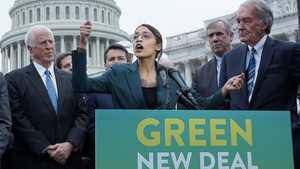
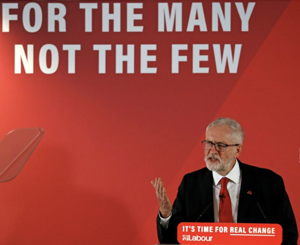
(4.) groups which oppose the “capitalist system” (the free market and liberal society) and which seek to either overthrow it or radically change it so it conforms to their ideas of how a future society should be structured and run; their efforts to win election to office in order to implement this radical program is resisted by most of the electorate, but attracts many younger voters (students):
- the groups associated with the revival of Marxism and "democratic socialism" - the more socialist members of the American Democratic Party such as Alexandra Ocasio-Cortez and Bernie Sanders; the the Marxist leader of the British Labour Party Jeremy Corbyn; they talk very much is the language of “class” but from a Marxist perspective
- the members of the Green and anti-climate change movements who wish to radically transform energy production and use, and to force the economy back into an earlier, less industrialized phase, the “remedievalisation” of the economy; taxpayer funded university climate scientists, subsidised green energy manufacturers (solar panels, wind turbines) vs. those people who enjoy the benefits of the modern industrial economy; ordinary taxpayers and consumers, the high price of electricity in Germany, South Australia
- note: the Green New Deal is socialism / communism in a new face but shares the false dream of the old form of communism that governments can rationally plan the entire economy and do what is “good for consumers”
5. Power and Privilege at the International Level
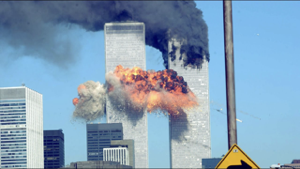
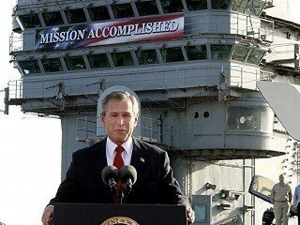

(5.) the most powerful groups in society who wish to use the power of the state to pursue their own interests at an international level - the Establishment, the “Deep State”, the ruling elite, the “Military-Industrial Complex”, the World Bank, International Monetary Fund, the permanent, professional, unelected senior bureaucrats within the intelligence agencies (CIA, NSA), military (Pentagon), foreign policy advisors (Council of Foreign Relations, the State Department), the police (FBI) vs. ordinary taxpayers and citizens, foreign citizens bombed or made homeless / refugees
- using the exaggerated fear of “terrorist attacks” to justify the handing over to them of enormous powers of surveillance and control of ordinary people
- using the military to intervene in the affairs of other countries which pose no real or direct threat to the lives, liberties, or property of the citizens (Afghanistan, Iraq, Libya, Syria, et al.) - for the purpose of protecting tyrannical regimes (Saudi Arabia) in order to control the Middle East and oil supplies; keeping Russia (and now China) from having influence in “America’s sphere of interest”; protecting Israel from its regional enemies; public choice explanation - senior officers in the military trying to advance their careers
- the constant wars and fear of terrorism enable the firms in the surveillance, intelligence, and military industries to get huge contracts from the “defense” budget at general taxpayer expence, a.k.a. the "military-industrial-security-congressional complex; exposed by whistle blowers like Edward Snowden and Julian Assange
- the coalition of national, central banks to coordinate interest rates and monetary policy in order to serve the needs and interests of the political and economic elites in the major developed economies
Further Reading
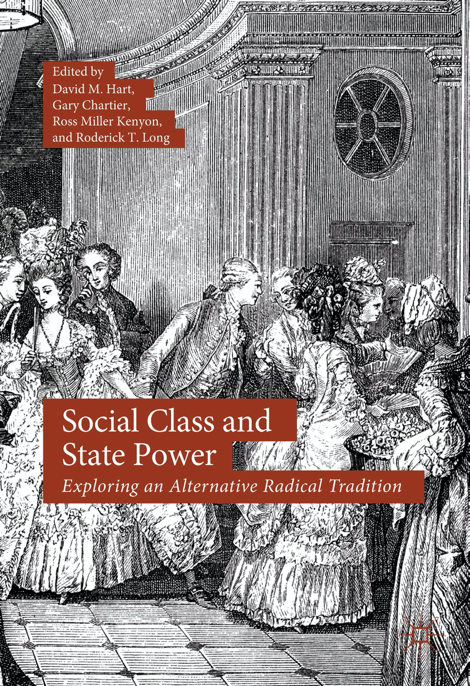
- my website <davidmhart.com/liberty>
- Social Class and State Power: Exploring an Alternative Radical Tradition, ed. David M. Hart et al. (Palgrave Macmillan, 2018).
- Interview with Anthony Comegna for Liberty Chronicles (Apr 17, 2018) <https://www.libertarianism.org/media/liberty-chronicles/social-class-state-power-david-m-hart>
- my larger collection of texts: “Parasites, Plunderers, and Plutocrats: An Anthology of Libertarian/Classical Liberal Class Analysis from La Boétie to Buchanan” <http://davidmhart.com/liberty/ClassAnalysis/Anthology/ToC.html>
- Liberty Matters online discussion on class: David M. Hart, “Classical Liberalism and the Problem of Class” (Nov. 2016) <http://oll.libertyfund.org/pages/lm-class>.
Other Images
See the collection of "Images of Liberty and Power" <http://oll.libertyfund.org/images>
- essay on "James Gillray on War and Taxes during the War against Napoleon" <http://oll.libertyfund.org/pages/james-gillray-on-war-and-taxes-during-the-war-against-napoleon>
- essay on "The People and the Ruling Elite in Caricatures (Wade and Daumier)" <http://oll.libertyfund.org/pages/the-people-and-the-ruling-elite-in-caricatures-wade-and-daumier>
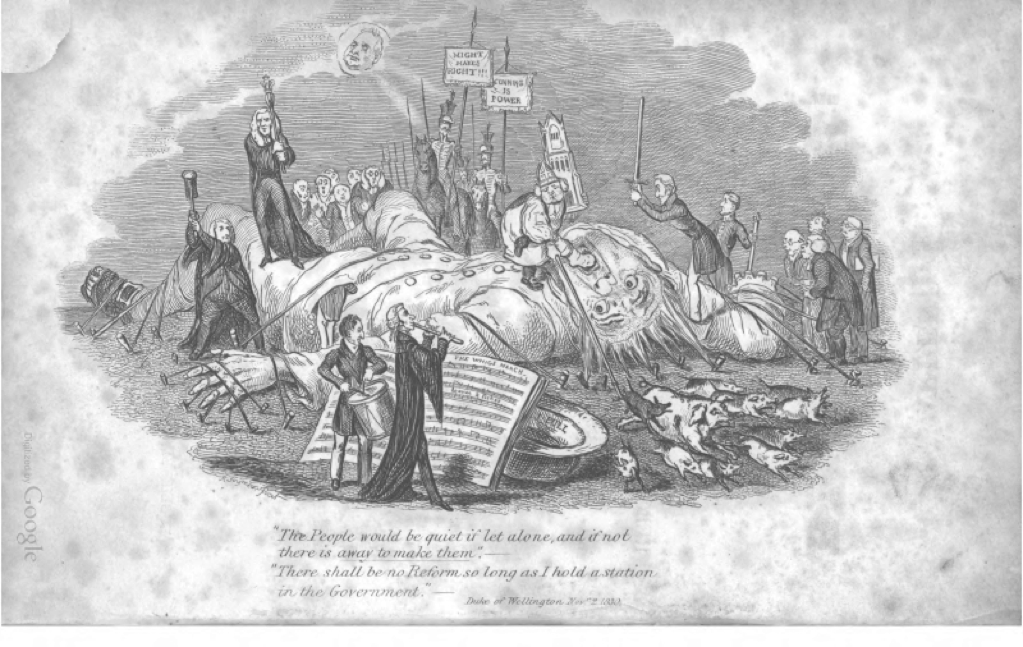
(Unknown artist), “John Bull as Gulliver” (1835)
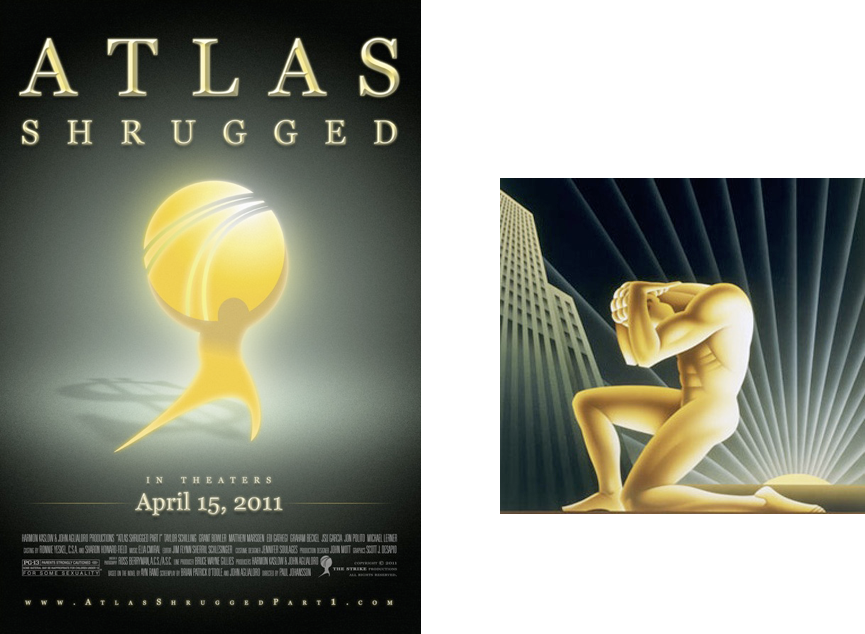
Poster for the movie version of Ayn Rand’s novel Atlas Shrugged (1957)